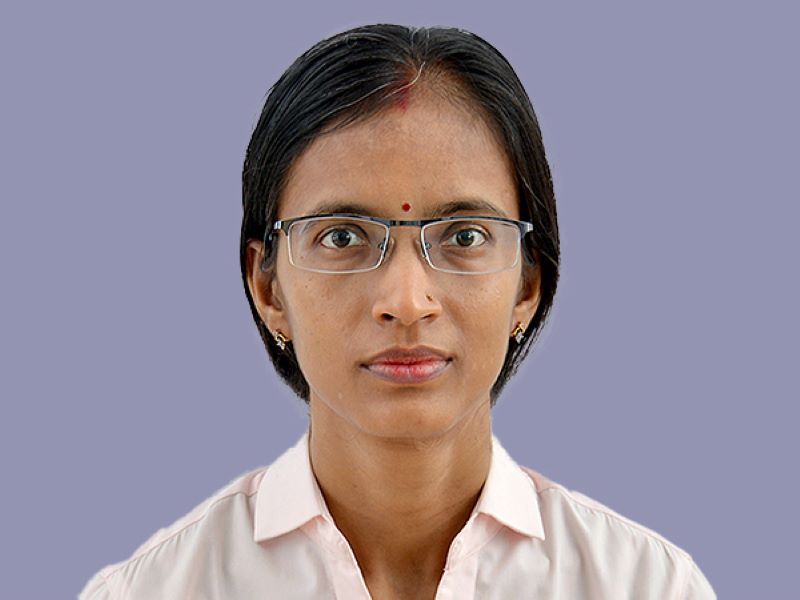
ISI Kolkata's Prof Neena Gupta wins Infosys Prize 2024 for her exemplary work in the field of Mathematical Sciences
Kolkata: Professor Neena Gupta has been awarded The Infosys Prize 2024 in Mathematical Sciences for her work on the Zariski Cancellation Problem, a statement said on Thursday.
Gupta is a Theoretical Statistics and Mathematics Unit professor at the Indian Statistical Institute in Kolkata.
The event was hosted at Infosys Science Foundation's office in Bengaluru.
Zariski Cancellation Problem is a fundamental problem in algebraic geometry first posed in 1949 by Oscar Zariski, one of the founders of modern algebraic geometry.
In 2014, Pof Gupta proved the striking result that Asanuma’s 3-dimensional affine variety yields a negative answer to Zariski’s original Cancellation Problem in positive characteristic, Infosys said in the statement.
The Infosys Science Foundation (ISF) announced the winners of the Infosys Prize 2024 in six categories—Economics, Engineering and Computer Science, Humanities and Social Sciences, Life Sciences, Mathematical Sciences, and Physical Sciences.
Initiated in 2009, the Infosys Prize awards recipients in each category a gold medal, a citation, and a prize purse of USD 100,000 (or its equivalent in INR).
Over the past 15 years, the ISF has recognized groundbreaking research and scholarship that has influenced various aspects of human life.
In 2024, the prize, with a new direction, decided to honour researchers under 40, emphasizing the need for early recognition of exceptional talent.
The winners of the Infosys Prize 2024 were announced by the trustees of ISF — Kris Gopalakrishnan (President, Board of Trustees), Narayana Murthy, K. Dinesh, Dr. Pratima Murthy, Mohandas Pai, and S. D. Shibulal. The other trustees of ISF —Nandan Nilekani, Srinath Batni, and Salil Parekh — extended their congratulations to this year’s recipients.
The winners of the Infosys Prize 2024 in the other six categories are:
Economics
Arun Chandrasekhar, Professor at Stanford University, received the Infosys Prize in Economics for his pioneering research on social and economic networks, particularly through data from Karnataka villages. His work enhances understanding of networks in the modern economy and informs development policy.
Engineering and Computer Science
Shyam Gollakota, Professor at the University of Washington, was awarded in Engineering and Computer Science for innovations in affordable smartphone-based healthcare, battery-free computing, and AI-enhanced auditory sensing.
Humanities and Social Sciences
Mahmood Kooria, Lecturer at the University of Edinburgh, was honored for his groundbreaking research on maritime Islam, focusing on Kerala’s role in pre-modern and early modern Islamic law and cultural transformations across the Indian Ocean.
Life Sciences
Siddhesh Kamat, Associate Professor at IISER Pune, was recognized for his research on bioactive lipids and their receptors, advancing understanding of cellular functions and potential impacts on human health.
Physical Sciences
Vedika Khemani, Associate Professor at Stanford, received the prize in Physical Sciences for her transformative work on non-equilibrium quantum matter, including the discovery of time-crystals, which may influence future quantum technologies.
In addition, laureates of the Infosys Prize have gone on to receive several prestigious international awards, including the Nobel Prize (Abhijit Banerjee and Esther Duflo), the Fields medal (Manjul Bhargava and Akshay Venkatesh), the Dan David Prize (Sanjay Subrahmanyam), the MacArthur ‘genius’ Grant (Sunil Amrith), the Breakthrough Prize in Fundamental Physics (Ashoke Sen), and the Marconi Prize (Hari Balakrishnan). Several laureates have been elected fellows of the Royal Society, among them Gagandeep Kang, who became the first Indian woman to be elected Fellow of the Royal Society.
Kris Gopalakrishnan, President, Infosys Science Foundation, said, “The Infosys Prize has played a pivotal role in recognizing brilliant minds whose contributions are shaping the future of research and science. This year, we refocused to reward early career researchers under the age of 40, recognizing their immense potential and the promise of paradigm-changing work. On behalf of the Infosys Science Foundation, I extend my heartfelt congratulations to the winners of the Infosys Prize 2024, whose achievements reflect the vital connection between science and society, inspiring the next generation of innovators.”
Support Our Journalism
We cannot do without you.. your contribution supports unbiased journalism
IBNS is not driven by any ism- not wokeism, not racism, not skewed secularism, not hyper right-wing or left liberal ideals, nor by any hardline religious beliefs or hyper nationalism. We want to serve you good old objective news, as they are. We do not judge or preach. We let people decide for themselves. We only try to present factual and well-sourced news.






